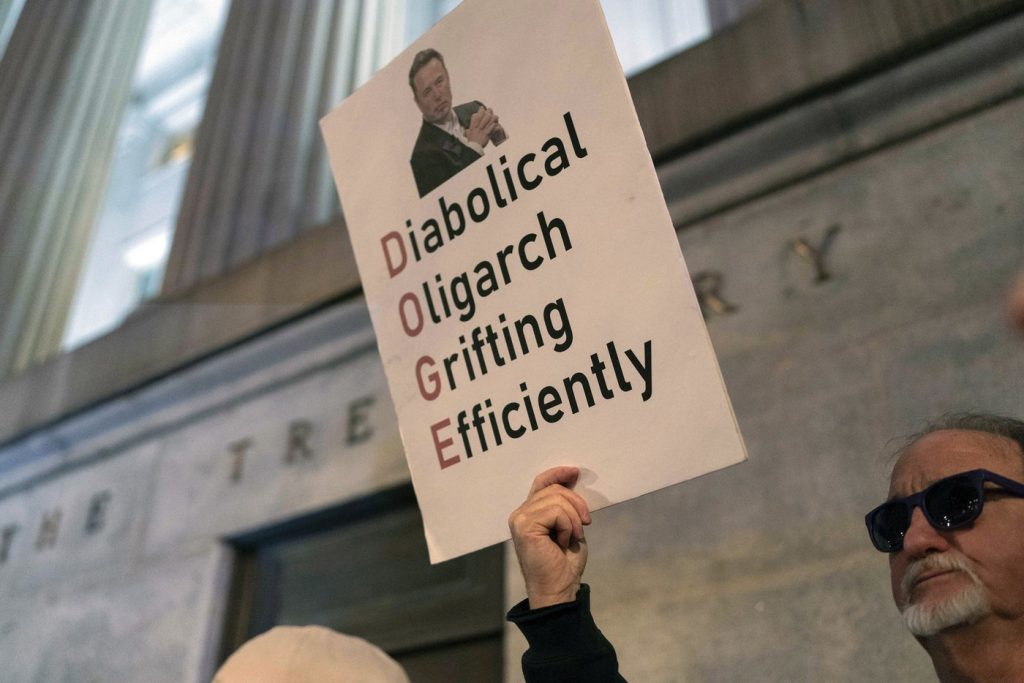Elon Musk's rise as a key player in Donald Trump's administration has created a significant shift in the dynamics surrounding the U.S. government. As the owner of the social media platform X, Musk has emerged as a prominent figure who utilizes this powerful communication tool to amplify Trump's messaging, while also pushing back against critics of the administration. With 215 million followers, Musk has used X to promote Trump's positions, criticize governmental agencies, and make serious allegations against individuals connected to the government.
His role is noteworthy as he operates under a classification as a special government employee, which exempts him from the same ethical standards and financial disclosures required of many other federal officials. Trump recently downplayed concerns about potential conflicts of interest, assuring the public that they are monitored. However, the extent of Musk's influence raises alarm among political analysts, with some describing it as unprecedented in the context of democratic governance.
Critics of Musk's dual role argue that it offers Trump an exceptional platform to communicate, subsequently making government narratives much more potent. Musk’s use of X has also sparked concerns regarding impartiality and transparency, leading to accusations that his actions may be financially motivated. From the beginning of Trump's presidency, Musk leveraged his status to support initiatives ranging from responses to natural disasters to Cabinet appointments, strategically aligning himself with the administration's agenda. For instance, he employed his considerable reach to publicize government narratives and defend Trump's actions regarding California's wildfires.
Furthermore, Musk's engagement in livestream discussions that include Republican figures exemplifies his role as a significant conduit for spreading governmental messages. In addition to promoting the administration's initiatives, Musk’s social media presence has stirred controversy by disseminating misleading information, which some critics argue is a deliberate attempt to obfuscate facts in favor of political narratives.
As the head of the Department of Government Efficiency, Musk's authority extends beyond social media; he has been involved in dismantling governmental functions such as the U.S. Agency for International Development. His postings accompanying such moves—calling the agency "evil" and suggesting the resignation of Treasury Secretary David Lebryk involved criminal activity—further blur the line between government oversight and personal vendetta.
Moreover, Musk’s management approach has drawn attention for its lack of transparency. Users of X have reported account suspensions for attempting to reveal the identities of his DOGE team members, indicating a pattern of controlling information that is unsettling to some observers. While Musk claims his communications are for public benefit, critics suggest that his filtered transparency leaves much to be desired.
The growing connection between Musk's social media platform and the Trump administration mirrors broader trends among tech CEOs who align their corporate policies with the incumbent government. Prominent executives like Mark Zuckerberg, Sundar Pichai, and Shou Zi Chew have similarly adapted their business strategies in ways that conform to Trump’s perspectives, reflecting a complex relationship between powerful tech figures and political authority.
Steven Livingston, an expert in the field, articulated the troubling nature of Musk’s influence, drawing attention to the erosion of democratic norms as billionaires gain an outsized impact on governance. He questioned the delineation between Musk's business interests and government responsibilities, underscoring a significant risk to accountability and public trust in democratic institutions.
In a broader sense, the dynamics unfolding between Musk, X, and the Trump administration may set a precedent that challenges traditional notions of separation between corporate interests and governmental objectives—a concerning evolution for contemporary democracy.










